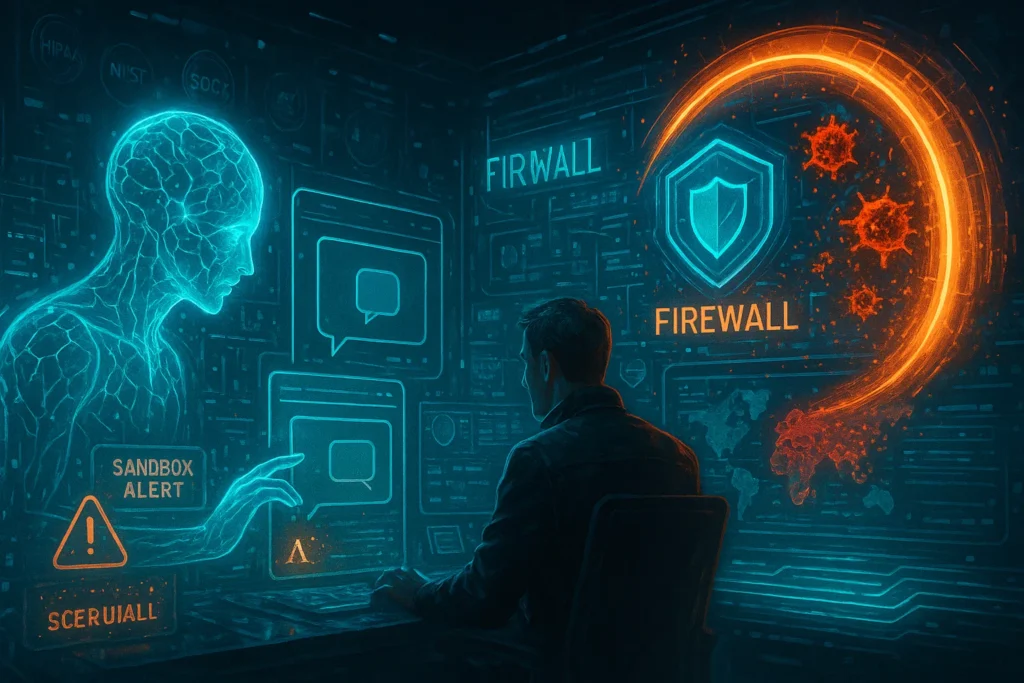Kyva AI Case Study: Enhancing Generative AI Security through Advanced Prompt Engineering

In the rapidly evolving landscape of artificial intelligence, generative AI technologies like Large Language Models (LLMs) are transforming how industries operate by automating complex tasks, enhancing customer experiences, and enabling innovative new applications. Amidst this digital transformation, cybersecurity has emerged as a critical area of focus. Kyva AI, an industry-leading platform known for its advanced Retrieval-Augmented Generation (RAG) capabilities, recognized early the vital importance of robust security measures tailored specifically to generative AI threats.
Kyva AI set out on an ambitious journey to ensure its platform’s resilience against emerging cybersecurity threats, particularly those targeting LLM vulnerabilities such as prompt injection, insecure data handling, and model exploitation. The goal was clear: to proactively identify and mitigate risks, ensuring the highest levels of security and reliability for its clients without compromising intellectual property or proprietary techniques.
The Challenge
Generative AI applications face unique cybersecurity threats that traditional IT security measures are often ill-equipped to handle. Chief among these threats is prompt injection, where adversaries craft sophisticated prompts to manipulate the behavior of generative AI systems. Prompt injection attacks can result in unauthorized data access, breaches of privacy, misinformation dissemination, and operational disruptions.
Kyva AI recognized the need to fortify its platform against these highly specialized threats while simultaneously maintaining client trust and adhering to industry compliance standards. The challenge was to execute a comprehensive security evaluation that would rigorously test their systems without exposing sensitive operational details or proprietary algorithms.
Why Prompt Engineering Matters
Prompt engineering is a strategic discipline focused on the careful design and testing of inputs that interact with AI models. Its importance lies in its ability to systematically identify weaknesses and vulnerabilities in AI-driven applications, making it an indispensable practice for cybersecurity in generative AI.
Through meticulous prompt engineering, organizations can proactively:
- Uncover vulnerabilities before adversaries exploit them.
- Improve the accuracy, safety, and reliability of AI-generated outputs.
- Develop robust defensive mechanisms to maintain operational continuity and compliance.
Our Approach
Red Threat Cyber Security (RTCS), a leading expert in AI and cybersecurity, partnered with Kyva AI to conduct an in-depth, specialized prompt engineering security assessment. Our approach was methodical and comprehensive, encompassing various scenarios designed to realistically simulate potential attacks on the platform.
Key phases of our approach included:
Phase 1 – Threat Modeling
Using industry-standard frameworks such as STRIDE and DREAD, we mapped out the potential threats specific to Kyva AI’s technology. We systematically categorized threats into meaningful risk profiles, enabling focused testing strategies.
Phase 2 – Scenario-Based Prompt Testing
Leveraging OWASP’s latest guidelines for LLM applications, our cybersecurity specialists crafted diverse scenarios and prompts specifically designed to exploit potential weaknesses. Each scenario was meticulously developed to reflect realistic threat conditions, including attempts at model inversion, unauthorized access, and manipulation of AI-generated outputs.
Phase 3 – Advanced Red Teaming
Our expert team simulated sophisticated adversarial behaviors to rigorously challenge Kyva AI’s security defenses. This phase included attempts to bypass access controls, exploit insecure outputs, and execute unauthorized data retrieval from the RAG systems.
Phase 4 – Continuous Feedback Loop
Throughout the testing period, RTCS and Kyva AI maintained close collaboration, ensuring real-time feedback and iterative improvements. This agile approach allowed for swift identification and remediation of issues uncovered during the prompt engineering exercises.
Results and Impact
The comprehensive prompt engineering security assessment significantly enhanced Kyva AI’s cybersecurity posture, resulting in tangible improvements:
- Vulnerabilities identified through prompt injection tests were addressed effectively, reducing critical risks significantly.
- Kyva AI now confidently showcases robust cybersecurity capabilities, reinforcing trust among existing and prospective clients.
- The platform now aligns closely with key cybersecurity standards such as the NIST AI Risk Management Framework and OWASP security guidelines, providing strong validation for enterprise-level engagements.
Lessons Learned
Through this rigorous security enhancement initiative, several critical lessons emerged:
- Continuous Vigilance: Cyber threats evolve rapidly, necessitating regular and proactive security testing and vigilance.
- Security-by-Design: Integrating comprehensive cybersecurity measures at every development stage enhances overall platform resilience and reliability.
- Controlled Transparency: While sharing general insights strengthens industry credibility and thought leadership, protecting specific operational and technical details safeguards against potential adversarial exploitation.
Future Direction
Looking ahead, Kyva AI remains committed to staying ahead of cybersecurity threats by continuously refining and evolving its security practices. Future initiatives will include:
- Further refining advanced prompt engineering methodologies to preemptively tackle emerging threats.
- Enhancing data privacy protections through techniques such as differential privacy.
- Expanding monitoring and threat detection capabilities to identify and mitigate threats in real-time, ensuring continuous operational security and compliance.
Key Takeaways
This case study underscores the critical role of prompt engineering in generative AI cybersecurity. By proactively identifying and addressing vulnerabilities, Kyva AI has strengthened its market position as a secure, reliable platform capable of safely supporting mission-critical generative AI applications for diverse enterprises.
Explore More
Interested in safeguarding your generative AI assets and securing a competitive edge in the AI-driven world? Discover how Red Threat Cyber Security can partner with your organization to enhance your cybersecurity posture and protect your valuable digital assets today.
Contact Us.
Our Locations:

Vienna Austria

Gampaha Sri Lanka

